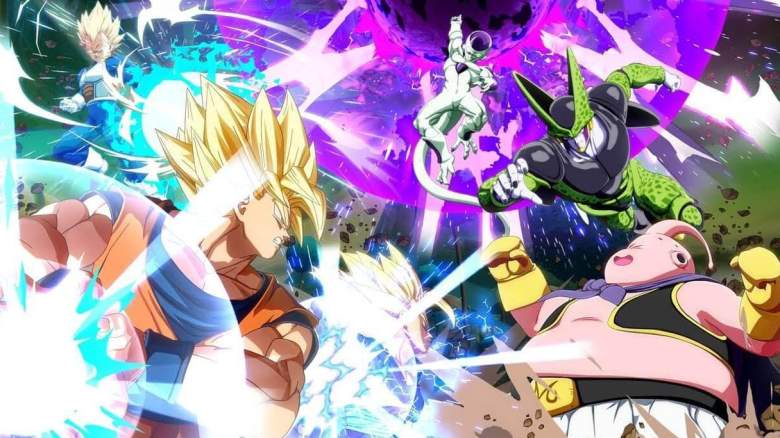
Simply put, Dragon Ball FighterZ’s biggest advantage for newbies like me is DBZ is as familiar as fighting games are foreign. If you’re picking up Arc System Works’ gloriously gorgeous fighter, and you’re at least tangentially versed with the world of Dragon Ball Z, many of the obtuse actions you’d find in other fighting games become much easier to understand and implement.
What I mean by this is DBZ has its own world, its own set of characters, attacks, and rules; we know what powering up is, we know what characters are known for which attacks and skills. Arc System Works needed only adapt these concepts well, and they did, which in turn makes Dragon Ball FighterZ the most accessible (and fundamentally educational) fighting game in quite awhile. Its chief accomplishment, other than looking almost exactly like the world-famous anime, is in how it teaches complicated fighting game staples through the context of both its story and tutorial. If you’re the kind of gamer who hears the phrases “Z Trigger” or “Block Cancel” and goes cross-eyed, FigherZ is still worth diving into.
Why? It’ll bring you home again.
In the 1990s Street Fighter II found its way to home consoles. As did Mortal Kombat. At that time and era, those titles were practically omnipresent in their popularity and their place in the cultural zeitgeist; Street Fighter II introducing the 1 vs. 1 fighting genre to millions of people worldwide by way of its colorful graphics and incredible quality, and Mortal Kombat doing the same by way of its graphic violence and gallows sense of humor. In their own way, these games changed our world.
Since? Well, it’s pretty hard to top ‘world-and-culture-changing game’ on the resume, and in an effort to innovate, fighting games became increasingly technical; power bars, block cancels, quarter circle inputs and tag-team style combinations became the norm, and titles like Marvel vs. Capcom and its sequels focused on cross-pollinating IP, and the New Mortal Kombats and DC Universe games adapted a frantic pace of modifiers, level transitions, and customization options. All of which were fine, but the result was fighting games became increasingly…intimidating to be ‘good’ at it and comprehend beyond moderate button-mashing success.
In that regard, Dragon Ball Fighterz feels like ‘home’ – easy to pick up and play, nearly impossible to master. It’s refreshing Dragon Ball FighterZ appears intent on welcoming newbies with open arms; in fact rewarding you with in-game currency for playing through the elaborate, encompassing tutorial, which covers concepts of Ki (power), blocking, and cancelling – which is a game mechanic I never knew I loved. When you dive into the story you get constant refreshers, and after some time, actually feel competent; winning via strategy and not random button mashing. It’s wonderful.
Most importantly, the game seems to borrow from the Smash Brothers school of special moves; some are specific, but if you know how to throw a Kamehameha, or execute a ‘comet’ (super) attack with one character, you can do them with most all characters – making FighterZ a game of skill versus a game of memorization. At least initially. If you dive in online, you’l naturally come across real-life players who will blow you out of the gosh darn water, proving there is a high skill ceiling, regardless of the game’s accessible nature.
Arc System Works, developers of the fan-favorite BlazBlue and Guilty Gear games, have proven fighting games can be for everyone without sacrificing depth or skill, that sometimes all you need is a little elbow grease and the right IP to guide you. Will newbies stick around to reach that ceiling and compete against the best-of-the-best? Who knows. There are certainly worse places to start, that’s for sure.